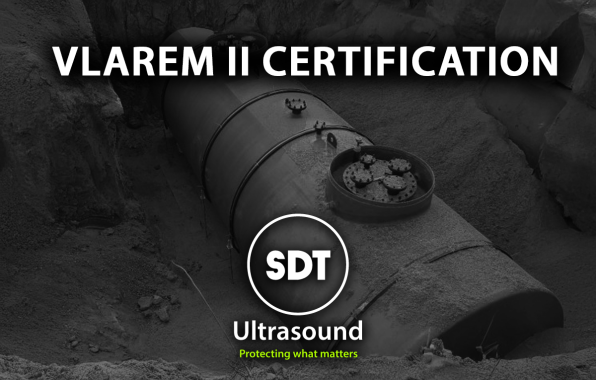“Cosmetic food”: the specificities of borderline products

At the crossroads of cosmetics and food, “cosmetofood” takes different forms. What are the particularities of this developing market and the regulations to which it is subject? Decryption.
“Cosmetofood”, defining frontier products
Food supplements in the form of capsules, powders or drinks… “cosmetofood” can take various forms. " We also speak of 'nutrifood' or 'nutricosmetics', so many designations that result from commercial or journalistic language but have no legal reality ", explains Katia Merten-Lentz, lawyer at the Paris and Brussels Bars, Member of the Council of the Order of the Bar of Paris. “ There are no specific regulations for these products on the border between food and cosmetics. All the complexity therefore consists in defining their nature and qualification ”.
In the absence of a specific definition, the only legal benchmark is that of use and not of purpose. A product intended solely for contact with the skin is considered a cosmetic, but when it is intended to be ingested, it falls under foodstuffs. “ A “cosmetofood” can therefore be defined as a foodstuff dedicated to beauty ”, summarizes Katia Merten-Lentz.
A strict regulatory framework
Considered as a food, “cosmetofood” must comply with the general European regulatory framework on food. It therefore includes Regulation (EC) No 178/2002 establishing the general principles and general requirements of food law (traceability, food safety, etc.). Regulation 1169/2011 on consumer information (INCO) also applies. It regulates labeling and commercial language.
Often, “cosmetofood” comes in the form of a food supplement. The latter must also comply with the European and national rules in force on this type of product. In addition, "super foods" with special beauty powers are frequently integrated. “ If we offer a super food that was not consumed in Europe before May 15, 1997, we fall under the regulations on new ingredients, “Novel food”. European authorization takes on average two years with a justification of the safety of this product before it is placed on the market ”, explains Katia Merten-Lentz.
A closely supervised promotion
The European Commission protects consumers and is particularly reluctant to authorize food products that claim benefits that are not scientifically substantiated. However, this proof is often difficult to obtain in “cosmetofood”. Any claim appearing on a food is legally framed. The applicable mechanism varies according to the nature of the allegation. When the promotion addresses a health issue, it falls within the scope of Regulation 1924/2006. “ Health claims are very often prohibited, around eight out of ten. This is particularly true when it comes to weight loss , ”analyzes Katia Merten-Lentz. The difficulty lies in the absence of a definition of health. It is therefore necessary to assess whether a claim relates to health or beauty in general. “ Commercial communication will be sifted through this regulation: it will be necessary to prove that the claim is not intended to mislead or highlight non-existent benefits. »
When the product argument relates to beauty, Regulation 1169/2011 applies. Common health and beauty claims relate primarily to hair, nails, and skin. “ All active terms like thinning, elasticity, resistance are generally refused because the European food safety agency considers that the scientific proof is not sufficiently established. Terms that are too subjective (volume of wrinkles, improvement in hair thickness, etc.) are also rejected ,” observes Katia Merten-Lentz.
Finally, it is important to take care to avoid “catch-all” claims relating to well-being, fitness and vitality. " Generic beneficial effects are authorized on condition that they are accompanied by a specific claim ", specifies the expert.
Deterrent sanctions
If the "cosmetofood" falls under strict regulations, severe penalties may also apply. In the case of a deceptive commercial practice, considered as an offence, a fine of up to €300,000 can be imposed as well as imprisonment for up to two years for the person responsible.
Labeling non-compliance can result in a fine of €1,500 per product placed on the market or a fine for an offense of up to €3,000 for a natural person and €15,000 for a legal person. “ All of this is negotiable and it is possible to attack the decision in court , nuance Katia Merten-Lentz. But you have to keep in mind that a fine does not mean that the sanction is not serious ”. In fact, the amounts can quickly reach a high level depending on the number of products put on the market.
" In 'cosmetofood', the word 'food' prevails ", concludes the lawyer. In this growing market, at the junction of the pharmaceutical and cosmetics industry, it is therefore essential to scrupulously ensure compliance with the regulations associated with your product in order to ensure its long-term marketing.
Our other news
See allJoin the largest community of industrial suppliers
- Helping you with your ongoing technology watch
- Provide you with detailed supplier statistics
- Give you international visibility
Discover the largest catalogue of industrial products on the market
- To offer you the best catalogue of industrial products on the market
- To guarantee you a 100% secure platform
- Enable you to have live remote exchanges


 Français
Français 







